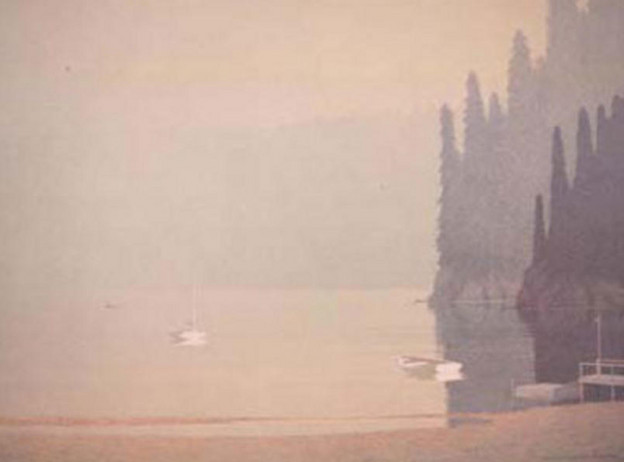
Russell Chatham (of Clark City Press, Livingston, Montana) in conversation with Noel King
From Jacket #3 (April 1998)

Noel King: What role do you think the small press plays in relation to the overall culture of book publishing?
Russell Chatham: My view of things, and it’s promoted by being physically distant from any publishing centres, derives from the fact that I was discouraged by experiences I had with larger publishers. As time has passed it seems they have taken less and less interest in what you might call serious books, or literary books, and look primarily toward large-profit items. And I suppose you can’t blame them: this is the world they live in and that seems to be what’s happening. That’s a discouraging situation for a lot of writers. When I started Clark City Press, it was always going to be a very small press; we could only think of publishing five to eight books a year. This was a lot for us but not much relative to the possibilities out there. And one of the things that was an eye-opener for me was how many manuscripts came unsolicited to us; hundreds, if not thousands, many of which were eminently publishable. What that showed me was how many serious writers had nowhere to turn, they were scratching at every possible opportunity to get their work published. And then you realise that the larger, traditional publishing houses aren’t picking up on these works. According to the sources I have, those companies no longer even have readers. Twenty years ago a person could say, “send a manuscript in to Doubleday” and somebody would sit down and read it and if it was good, they might even consider publishing it. That doesn’t exist any more. So, particularly for younger people or people just starting out, it’s a very discouraging landscape to view.
I wanted to avoid that situation. I had a few of my own books I wanted to see in print and I knew I had the capability of designing and manufacturing them properly, doing a first-rate job, bringing out a handsome edition with no typographical errors! That seems so obvious but it’s a lot to ask these days and to me that’s preposterous. A couple of decades ago a typographical error in a book was a tremendous embarrassment and you had to print an addendum to ‘fess up that you’d made a mistake, even one typo in an entire book. And now it’s not unusual to pick up a novel and find numerous errors and no-one seems to care.
What are some of the main things that you think have changed in US book publishing and book culture?
Once you turn the reins of a publishing house over to the book-keeping department rather than the editorial department then the whole focus of the company changes. Publishing has always been a financially complicated and difficult business. However, certainly at the time I was growing up, a publishing house was run by publishers and the accountants worked for the publishers. Now it seems the other way around. I think this is symptomatic of every bit of what could come under the label of ‘culture’ in America, not just the publishing industry. It’s all money-driven.
The only place in literary culture where the industry isn’t money-driven is with the independent booksellers where, generally speaking, you’ll find the owner is in there because he or she loves books and they’re not making much money. On the other hand the publishers themselves are money-driven, just as the movie-industry is, just as the art industry is, completely. The people who aren’t money-driven are people like me who are off in some backwater like Livingston, Montana!
Speaking of that, you’ve been here about twenty-five years now, having initially come up from the Bay area, San Francisco to visit Tom McGuane?
That was the initial reason for the visit. At that time Tom had had some luck with his first couple of books and he’d always wanted to have a place in Montana and a place in Key West, the Florida Keys, for fishing and hunting reasons as well as living reasons. So I just came up here for a visit, to fish, but I already had a clear sense of what was happening to California and it was very discouraging: a population explosion, it’s slowed now but they’re bursting at the seams. It’s just too crowded, and I knew I needed to be some place where there was space, a less expensive life, that was an issue too. Throughout history, artists and writers have always looked for places that are both beautiful to live in and cheap to live in. And this place qualified.
That fishing visit was in the fall of 1971 and I found a place to rent but we couldn’t quite make the transition with winter fast approaching and so we waited until spring and came up here in April. In those days, even in my wildest dreams, I never thought this place would be discovered by anyone, and now it’s all anybody can talk about.
Read more of this interview.